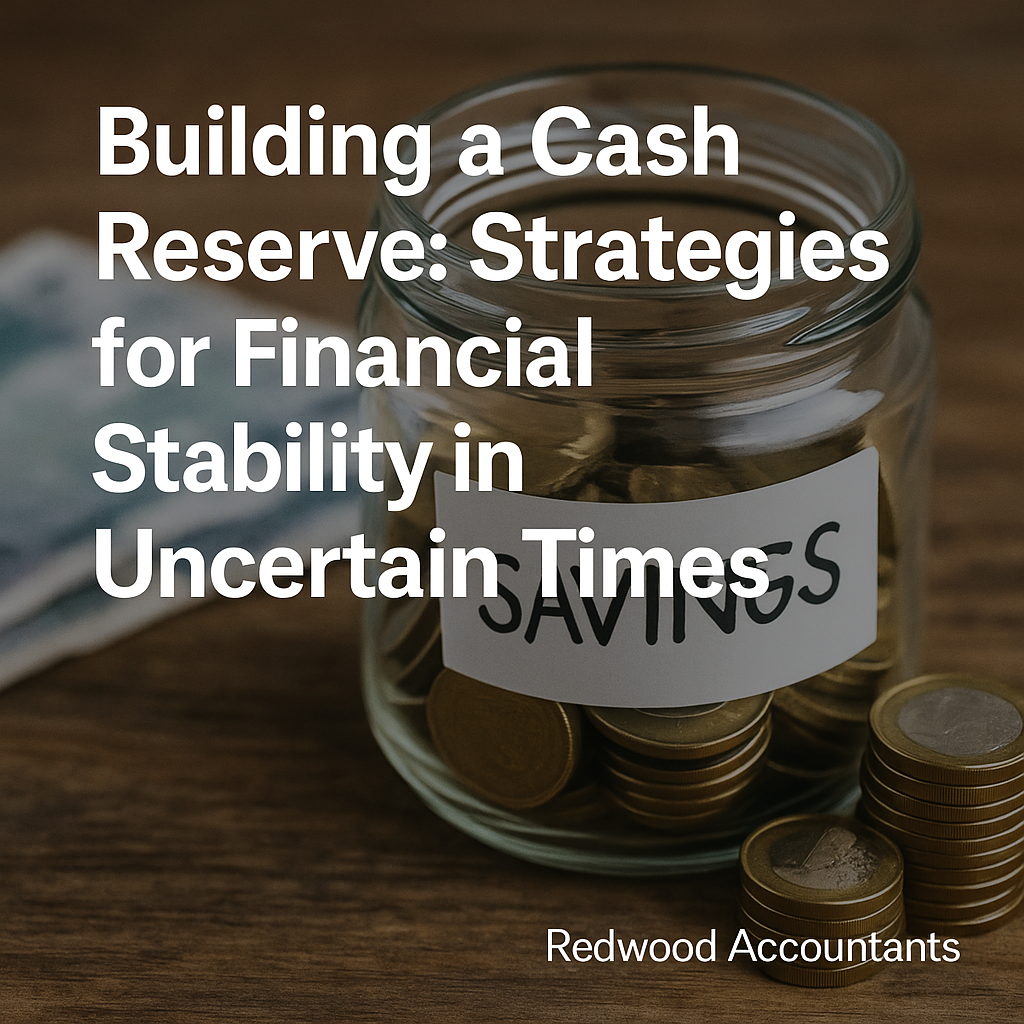





Building a Cash Reserve: Strategies for Financial Stability in Uncertain Times for Rugby Businesses
November 18, 2025
by
Joe Judge
Economic uncertainty, interest rate changes, and shifting market conditions have made one thing clear for business owners across Rugby and Warwickshire: having a strong cash reserve is no longer optional—it's essential.
At Redwood Accountants, we help SMEs build financial resilience through clear planning, disciplined budgeting, and smart decision-making. Here’s how you can start building a cash reserve that protects and empowers your business.
Why Do You Need a Cash Reserve?
A healthy cash reserve provides your business with breathing room during:
- Unexpected dips in income
- Late payments from customers
- Sudden tax bills
- Equipment breakdowns
- Market or supply chain disruptions
Think of it as your business’s financial safety net—allowing you to stay calm, agile, and independent during difficult periods.
How Much Cash Should You Hold?
There’s no one-size-fits-all answer, but a good rule of thumb is to hold 3 to 6 months’ worth of essential outgoings. This includes:
- Rent or mortgage
- Payroll
- Key supplier costs
- Tax obligations
- Insurance premiums
We help clients review fixed vs variable costs to calculate a realistic reserve target tailored to their business.
5 Practical Strategies to Build Your Reserve
1. Treat It Like a Non-Negotiable Bill
Commit to transferring a set amount to your reserve each month—just like paying rent or VAT.
2. Set Up a Separate Business Savings Account
Keep your reserve ringfenced from daily operating funds to avoid “accidental” spending.
3. Review Your Pricing
Low margins make it hard to build reserves. Review your pricing regularly and don’t undercharge for high-value services.
4. Cut Waste Without Cutting Quality
Look at recurring expenses, unused subscriptions, or areas where you’re over-servicing clients. Small savings add up.
5. Allocate Windfalls and One-Offs
Got a tax rebate, grant, or unusually strong sales month? Divert some of it into your cash buffer.
What About Tax?
Holding cash in the business is not taxed until it’s distributed (e.g. via dividends or salary). However, if the business is sold in future, excess cash could reduce Business Asset Disposal Relief eligibility—so speak to your accountant for long-term planning.
What If You're Just Starting Out?
Start small. Even £200–£500/month can quickly grow into a useful emergency fund. You don’t need to hit your full target right away—just build momentum and stay consistent.
Redwood Accountants: Helping Warwickshire Businesses Build Financial Strength
We work with sole traders, limited companies and landlords across Rugby and Warwickshire to:
✅ Analyse cash flow and set realistic savings targets
✅ Build budgeting discipline into monthly routines
✅ Use software to track progress automatically
✅ Create contingency plans for worst-case scenarios
Final Thoughts
A cash reserve isn’t just for hard times—it gives you confidence to invest in new opportunities, take measured risks, and stay in control. If you're ready to build your business’s financial safety net, Redwood Accountants can help.
📞 Get in touch today to start building your buffer—with a plan that fits your business.